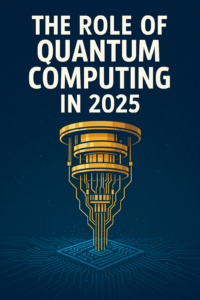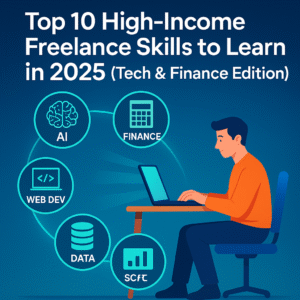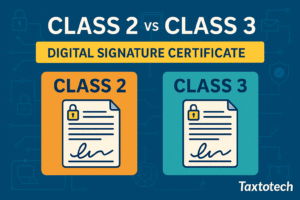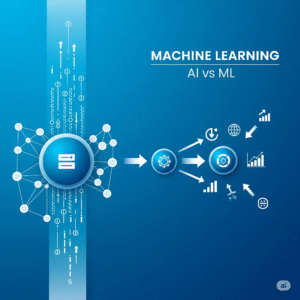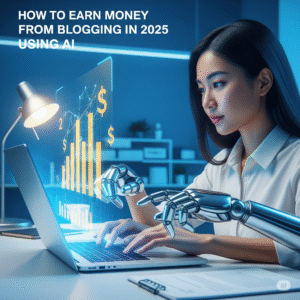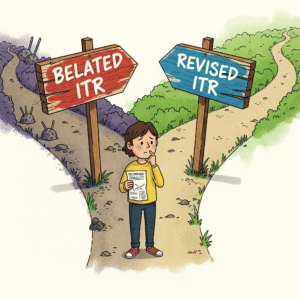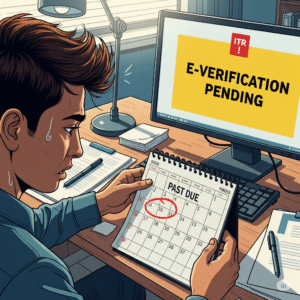For decades, the image of a tax department has been one of diligent professionals surrounded by stacks of paper, meticulously crunching numbers and interpreting dense legal texts. While precision and expertise remain paramount, the very fabric of this critical business function is being fundamentally reshaped. The rapid advancement and adoption of Artificial Intelligence (AI) are moving tax departments beyond spreadsheets and manual tasks, propelling them into a new era of strategic influence.
This transformation isn’t about replacing human tax professionals with machines; it’s about augmenting their capabilities, freeing them from routine drudgery, and elevating their role within the organization. At Taxtotech, we understand that the future of tax departments hinges on proactive upskilling for an AI-driven business landscape. It’s about equipping tax teams with the new competencies needed to thrive in this evolving environment, making them more analytical, strategic, and valuable than ever before. Let’s explore what this future looks like and how tax professionals can prepare for it.
The Evolving Role of the Tax Professional in the AI Era
AI and automation are rapidly taking over tasks that are repetitive, rules-based, and data-intensive. This includes:
- Automated Data Collection & Reconciliation: AI can pull data from disparate systems, clean it, and reconcile it far faster and more accurately than any human.
- Routine Compliance Filings: AI can automate the preparation and even submission of many standard tax forms and reports.
- Basic Research & Interpretation: AI can quickly sift through vast libraries of tax law, regulations, and rulings to find relevant information.
- Anomaly Detection: AI identifies unusual patterns or discrepancies in data that might signal errors or audit risks.
This shift means that tax professionals are no longer primarily data processors or compliance administrators. Their role is evolving into one that is more strategic, advisory, and analytical:
- Data Interpreters: Understanding what the AI outputs mean and validating its insights.
- Strategic Advisors: Leveraging AI-generated insights to provide proactive tax planning advice, identify new opportunities, and inform overall business strategy (e.g., M&A, new market entry, supply chain optimization).
- Risk Managers: Focusing on complex compliance issues, mitigating high-stakes risks, and defending tax positions.
- Technology Liaisons: Working closely with IT and external vendors to implement and optimize AI solutions.
- Cross-functional Collaborators: Partnering with finance, legal, and operational teams to integrate tax considerations into broader business decisions.
The value of the tax professional in an AI-driven world shifts from “doing” to “thinking,” “analyzing,” and “advising.”
Core Competencies for the AI-Driven Tax Department
To thrive in this transformed environment, tax professionals need to cultivate a new set of skills that complement their existing tax expertise. This involves upskilling for an AI-driven business landscape:
- Data Literacy & Analytics:
- What it means: The ability to understand, interpret, and work with large datasets. This includes knowing how to access data, understand data structures, perform basic data manipulation, and interpret statistical findings from AI tools. It’s about being comfortable with data visualization and understanding cause-and-effect relationships within financial information.
- Why it’s crucial: AI’s output is data. Tax professionals need to confidently interpret these data-driven insights, question assumptions, and validate findings, rather than blindly accepting them.
- Technology Acumen & Digital Fluency:
- What it means: Familiarity with core technologies like cloud platforms, Robotic Process Automation (RPA), AI/Machine Learning tools, and data visualization software. It doesn’t mean becoming a coder, but understanding the capabilities and limitations of these tools.
- Why it’s crucial: To effectively leverage AI solutions, tax professionals must understand how they work, how to interact with them, and how to identify opportunities for further automation or insight generation.
- Strategic Thinking & Problem-Solving:
- What it means: The ability to move beyond transactional tasks to identify complex tax issues, devise innovative solutions, and align tax strategy with overall business objectives. This involves critical thinking, scenario planning, and the capacity to anticipate future challenges.
- Why it’s crucial: As AI handles routine tasks, tax professionals will spend more time on high-stakes, nuanced problems that require human judgment and creative solutions.
- Communication & Collaboration:
- What it means: Effectively communicating complex tax concepts and AI-driven insights to non-tax stakeholders (e.g., C-suite executives, legal, operations). It also involves strong collaboration skills to work with IT, external vendors, and other departments.
- Why it’s crucial: The tax department will increasingly become an advisory function. Clear communication of complex data and strategic recommendations will be essential for influencing business decisions.
- Ethical AI & Governance:
- What it means: Understanding the ethical implications of using AI in tax, including data privacy, bias in algorithms, and the responsible use of predictive analytics. It also involves establishing robust governance frameworks for AI adoption.
- Why it’s crucial: As AI plays a larger role, ensuring its fair, transparent, and compliant operation becomes a critical responsibility for tax leaders.
- Continuous Learning Mindset:
- What it means: A proactive approach to staying updated not just on tax law changes, but also on emerging technologies, best practices in AI, and evolving industry trends.
- Why it’s crucial: The pace of technological change is accelerating. Tax professionals must embrace lifelong learning to remain relevant and effective.
Old Skills vs. New Skills for Tax Professionals
| Traditional Core Skills (Diminishing Focus) | New Core Competencies (Growing Importance) |
| Manual Data Entry | Data Literacy & Analytics (interpretation, visualization, validation) |
| Rules-Based Compliance Filings | Technology Acumen (AI/ML, RPA, Cloud platforms, data integration) |
| Retrospective Reporting | Strategic Thinking & Problem-Solving (proactive planning, innovation) |
| Siloed Operations | Communication & Collaboration (inter-departmental advisory) |
| Basic Software Operation | Ethical AI & Governance (responsible use, bias mitigation, privacy) |
| Reactive Audit Response | Continuous Learning Mindset (adaptability, lifelong upskilling) |
Strategies for Upskilling Your Tax Team
Organizations and individual tax professionals can adopt several strategies to prepare for this future:
- Internal Training Programs: Develop workshops and courses focused on data analytics tools (e.g., Power BI, Tableau), basic programming concepts (e.g., Python for data manipulation), and the specific AI solutions being implemented within the organization.
- External Certifications & Courses: Encourage enrollment in specialized online courses or certifications in data science for finance, AI for business, or digital transformation.
- Cross-Functional Rotations: Provide opportunities for tax professionals to work within IT or data analytics teams to gain practical experience and a deeper understanding of technological capabilities.
- Foster a Culture of Experimentation: Create a safe environment where tax professionals can experiment with new tools and techniques, learn from failures, and share successes.
- Partner with Academia & Tech Vendors: Collaborate with universities to develop specialized tax tech curricula and work closely with AI software vendors to leverage their training resources.
- Mentorship & Reverse Mentorship: Senior tax professionals can mentor junior staff on complex tax issues, while tech-savvy junior staff can offer insights into new technologies to senior leaders.
Building the “Tax Department of the Future”
Beyond individual upskilling, organizations need to strategically transform their tax departments:
- Invest in the Right Technology: Implement scalable AI-powered tax software, data analytics platforms, and automation tools that support the new strategic vision.
- Redefine Roles & Responsibilities: Clearly articulate the changing expectations for tax professionals, emphasizing analytical and advisory tasks over purely compliance-driven ones.
- Recruit for New Skills: When hiring, look for candidates who not only have strong tax fundamentals but also possess data literacy, technological curiosity, and problem-solving abilities.
- Break Down Silos: Foster greater collaboration between the tax department and other business functions (finance, legal, operations, IT) to ensure a holistic approach to business strategy.
- Embrace Change Leadership: Senior tax leaders must champion the adoption of AI and lead by example, demonstrating a commitment to continuous learning and innovation.
The Benefits of an Upskilled, AI-Ready Tax Team
Investing in upskilling for an AI-driven business landscape yields significant returns for the entire organization:
- Enhanced Efficiency & Accuracy: Automation of routine tasks leads to faster processing, fewer errors, and a more streamlined tax function.
- Greater Strategic Value: Tax departments transition from a cost center to a value-added strategic partner, providing insights that drive business decisions.
- Improved Compliance & Risk Mitigation: Proactive AI insights lead to stronger compliance, fewer audit triggers, and better defense mechanisms.
- Increased Employee Satisfaction & Retention: Tax professionals find their roles more engaging and fulfilling, leading to higher job satisfaction and reduced turnover.
- Competitive Advantage: Businesses with AI-ready tax departments are more agile, adaptable, and better positioned to navigate complex global tax changes.
Benefits of Upskilling for Tax Departments
| Benefit Area | Impact on Tax Department | Broader Organizational Impact |
| Efficiency & Productivity | Automation of repetitive tasks, faster data processing. | Reduced operational costs, quicker financial closing. |
| Strategic Influence | Shifts from compliance focus to proactive advisory and planning. | Informed business decisions, optimized resource allocation, competitive advantage. |
| Compliance & Risk | Proactive identification of risks, enhanced accuracy, stronger audit defense. | Minimized penalties, reduced legal costs, improved corporate governance and reputation. |
| Talent & Culture | More engaging roles, higher job satisfaction, attracts top talent. | Increased employee retention, stronger internal capabilities, innovation culture. |
| Adaptability | Ability to rapidly respond to tax law changes and technological advancements. | Business agility, resilience in dynamic regulatory environments. |
| Cost Reduction | Lower reliance on external services for routine tasks, optimized tax positions. | Improved profitability, better cash flow management. |
Conclusion: Embracing the Intelligent Tax Future
The transformation of tax departments by AI is not a distant possibility; it is happening now. The future of tax departments is bright for those willing to embrace change and invest in upskilling for an AI-driven business landscape. By shifting focus from manual tasks to data interpretation, strategic analysis, and technological acumen, tax professionals can evolve into indispensable strategic advisors, driving significant value for their organizations.
At Taxtotech, we are committed to guiding you through this exciting evolution. Understanding the blend of tax expertise and technological proficiency is key to thriving in the AI era. Don’t be left behind; equip yourself and your team with the skills to lead the tax department of tomorrow.
We’d love to hear from our Taxtotech Readers, especially tax professionals and department heads!
- What new skills do you believe are most critical for tax professionals in the age of AI?
- How has your organization approached upskilling its tax department for technological advancements?
- What excites you most about the future of the tax profession with AI integration?
Share your insights and experiences in the comments below! Your contributions help to shape the conversation around this pivotal shift. And for more cutting-edge insights on how technology is revolutionizing finance, remember to visit https://taxtotech.com. Let’s build the intelligent tax future, together!






